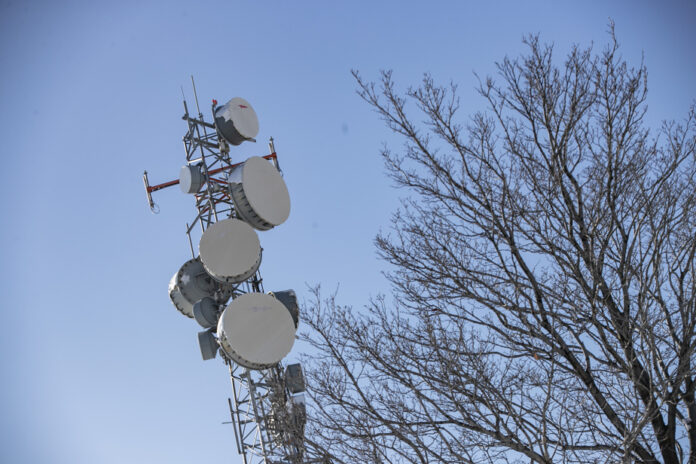The latest auction of the federal government’s chunks of mid-band wireless spectrum, which ended last month, will impact the prices and quality of Canadians’ cellphone and internet services, experts say .
The auctions, the first since 2021, extended for a month. Twenty-two companies qualified to participate.
The federal government says it awarded 4,099 licenses in the auction, which earned it about $2.6 billion. He said the 3800 MHz auction marked a key milestone in his plan to make spectrum available for 5G services and rural connectivity.
Gregory Taylor, an associate professor at the University of Calgary, says 5G deployment is a good way to move data quickly and far.
This money can then be used to improve these services, particularly in remote areas.
Professor Taylor recalls that 5G was considered, not so long ago, to be the ultimate in technology. Some dared to predict that connections would reach the speed of light, but this did not come true. The professor argues that such a boom would have required “transmission towers on every streetlight” in order to be able to transfer enormous amounts of data.
The deployment of 5G on the 3800 MHz frequency is a reasonable solution, “even if the connection will not be as fast as what was announced four or five years ago”.
Mark Goldberg, a telecommunications consultant, calls this solution “perfect.”
“[This frequency] is neither too low nor too high. It provides good coverage and capacity. This is really important since people use data more these days, he explains. Our 5G networks are not as fast as those in the United States. The spectrum was blamed for this. Consequently, this solution will allow service providers to largely catch up with their American competitors. »
Telus Communications had the highest number of licenses in the preliminary results, having secured 1,430 licenses for almost $620 million. Bell Canada obtained 939 licenses for $518 million, followed by Rogers Communications, which invested $475 million to acquire 860 licenses.
Videotron, a subsidiary of Quebecor Media, which sought to consolidate itself as the fourth national operator after the purchase of Freedom Mobile, spent nearly 300 million to obtain 305 licenses.
According to John Lawford, general director of the Public Interest Advocacy Center, Videotron had to “take risks” and embark on a significant investment to gain market share.
“We could see more towers belonging to Videotron. The company will not have to enter into roaming agreements with Telus or Rogers in the West. It will be able to expand its activities more quickly in the west. »
Cogeco Communications announced an investment of 190 million to acquire 99 licenses.
The federal government said the auction was “an important milestone in its plan to stimulate competition in the wireless services market.” Professor Taylor believes that this process benefits the largest providers who can invest the most in licensing their existing networks.
“Smaller companies can’t match the stakes. They can barely reach the initial stake, he says. And are they really going to use these licenses or did they buy them so they can sell them later. »
The challenge for smaller service providers is not just being able to outbid large companies, says Matt Hatfield, chief executive of OpenMedia, a lobby group that defends internet access.
Even when an independent company succeeds in its bid, subsequently establishing a functioning and affordable local network is often unrealistic.
Hattfield says the easiest solution for these companies is to keep their licenses for a while and try their luck. In three, five or seven years, they will be able to recognize their failure and say that the time to sell to Rogers or Bell has come, he says.
“It is still unrealistic for a government to hope that smaller companies can establish a network that can compete directly with the “Big Three”. »

